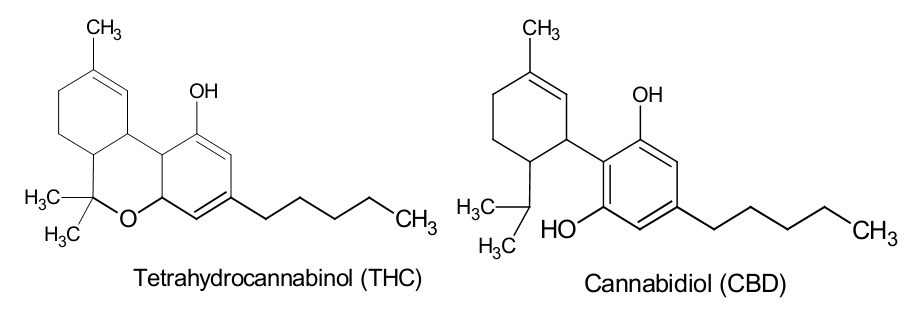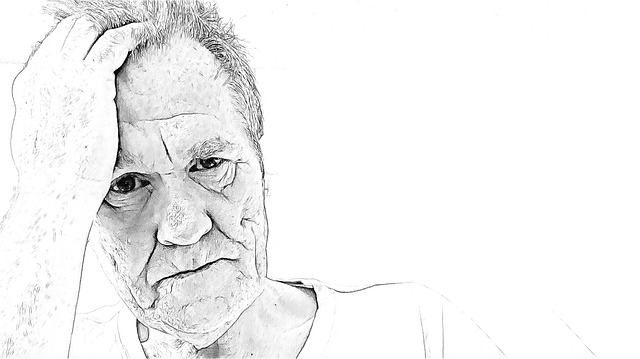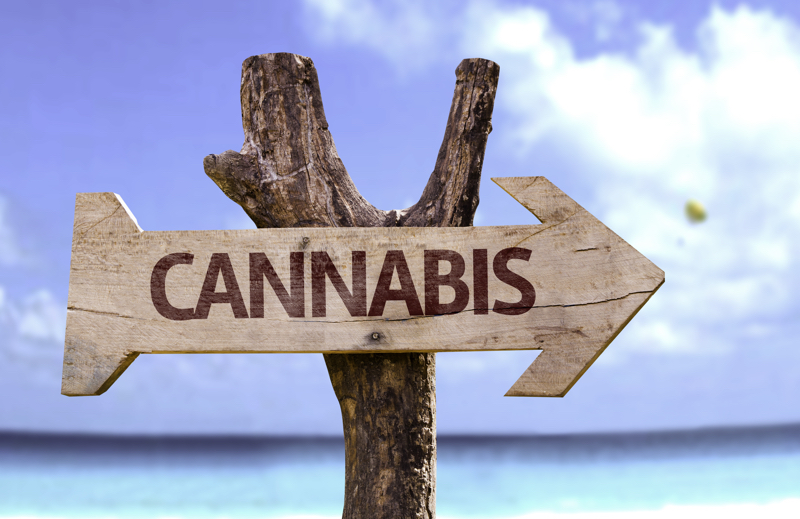THC vs CBD: Their Effects, Health Benefits, & Medical Benefits
1 Comment
THC versus CBD. What’s the difference, and what does it mean for your marijuana consumption?
What you'll learn in this post:
[Click any of the section titles below to jump there]
“This Is a Miracle Drug”
Poolside in Covina, California, “Sylvia”* daintily purses her lips and takes a quick rip of her joint, deceptively potent despite its modest roll.
“I purchase only top shelf stuff. I learned from my kids…quality over quantity,” she smiles through the tendrils of Bubble Gum scents as they waft through the air.
“I have a little bit of everything. Some glaucoma. Nausea from my heart medicine. Arthritis in my hands. And trouble sleeping and anxiety, most of which started when my husband passed away five years ago.” She issues a wry grin and says “Now I don’t have to go out much, so I’ve become quite the bud-tender.”
She says this all in an unflinching, matter-of-fact manner, as if describing a medical procedure. “When someone recommended medical marijuana years back for all my ailments, I laughed. I hadn’t used the stuff since high school, and even then I was not even a recreational user.”
But she got a prescription, and now expertly names of her favorite strains with the energetic vigor of a Napa Valley sommelier. She fingers a particularly purplish offering and notes “We just got this in. See the hairs on this one? How many crystals? This is super THC-loaded!”
Cannabis & the Cannabinoid Connection
Marijuana’s strains can be as colorful and varied as wildflowers themselves, yet all the plants have a remarkably popular way of discussing and measuring potency: THC.
All marijuana plants contain dozens of cannabinoids. Some are very well-known. And the undisputed king of all cannabinoids is tetrahydrocannabinol. Name-checked in music videos and a familiar acronym to even the most conservative critics, THC sits atop the mountain of infamous marijuana chemical compounds.
When enough is consumed, THC is believed to be primarily responsible for the head rush associated with marijuana, the euphoric “high” feeling that users crave. When discussed by critics as weed’s role as a gateway drug, this “buzzed” feeling tops the list as the most worrisome element, leading users down the route to addiction and harder substance abuse.
But amidst the sticky leaves of the bud plant lies a plethora of other compounds and cannabinoids besides THC.
As marijuana cultivation has become a more accepted past-time, cultivating methods that enhance these other cannabiniods is becoming a serious science for both medical researchers and hobbyists. Chief among them is CBD (we’ll soon uncover the mystery behind THC vs CBD), short for cannabidiol.
Chief difference between THC vs CBD, simply put, is THC gets you stoned and CBD does not. The fact that patients can be treated with CBD without the troublesome side effect of getting stoned has lead to an intense look at CBD’s potential and future uses in both the recreational and medical cannabis industry.

The concept of safer medical marijuana with less side effects opens a world of possibilities of treatments, not just limited to humans.
“I’ve even given [medical marijuana] to my dog. She was thirteen and half blind, and her legs started to go,” Sylvia reveals. “Friends told me to put her down, but I just felt she had more time, and I hadn’t tried everything. I heard that there was cannabis oil you could give your pets, and I did the research.”
Luther, a surprisingly spry 16 year old dachshund mix, lays glued to Sylvia’s thigh on the couch, contently snoozing the day away. “This is a miracle drug. Anyone who says otherwise just doesn’t have a clue.”
“People Won’t Hold It Against You”
“Emily”* sits under the forlorn bleachers of her local high school. Her older boy cousin has had a connect in Berdoo for years. This slummy San Bernardino section of patchworked tract houses and failed commercial ventures projects a declining future through the hazy afternoon sunlight.
An opaque cloud explodes from her mouth as she smoothly slips her vape pen back into her pocket. “Vaping is literally the best thing to happen to weed. I vape everywhere now.”
The very picture of the recreational user, Emily nonetheless carries the picket fence picture of an ideal child to a tee. Boasting a GPA “in the high 3’s” and a veteran of several school organizations, she has already been accepted to three colleges, with no final decisions made. “I’m still waiting on Stanford, but I don’t know. I’m thinking I may stay local.”

“Smoking completely helps me study and keeps me focused. I always figured, rather than some of that nasty chemical stuff, why not use the all-natural stuff I’ve already tried?” she reasons. “I’m not saying we should all self-medicate, but I think smoking weed is much more like drinking coffee or having a cigarette than injecting a needle in your arm.”
Especially when you consider how the THC vs CBD conversation reveals that consuming different types of cannabis does not lead to madness and debauchery. Instead, different people can experience different medical and recreational applications and benefits of marijuana.
Taking a Hit Without Getting Lit
A leading argument against legalization of marijuana is the unpredictable reaction different people have, as well as proper diagnosis/dosage/strain versus recreational usage.
See also: 7 Tips to Control Your Cannabis Dosing
Both THC and CBD are found in marijuana, and both arguably have medicinal qualities. But both can provoke significantly different reactions in people, and this difference has become the central argument in the future of medical marijuana. It truly is: THC vs CBD.
Probably the main difference between the two ingredients is the psychoactive component. THC has been well-documented to cause anxiety or paranoia among new users. However, CBD is particularly non-psychoactive, meaning there is no feeling of euphoria associated with getting high.
In fact, CBD not only counteracts the effects of THC, it can reduce anxiety when administered by itself. Therefore, CBD is favored by the medical community, which prefers treatments with little to no side effects.

There is also the element of antipsychotic properties. THC produces psychosis like effects but CBD can protect marijuana users from this “super high.” CBD is actually being tested as a possible anti-psychotic medication and solution for illnesses that range from bi-polar disorder to schizophrenia.
Recent research published by Neuropharmacology reveals that CBD “induces rapid-acting anti-depressant-like” effects. “Our findings indicate that CBD could represent a novel fast antidepressant drug, via enhancing both serotonergic and glutamate cortical signaling,” explained researchers.
Though she had never before heard of the difference of various marijuana chemicals (THC vs CBD), Emily was sold on CBD’s future benefits.
“I’m a huge fan of CBD research!” exclaims Emily. “If it’s true that you can get the same productive results without the high, the stereotype of the lazy stoner won’t be as relevant anymore. Then maybe people won’t hold it against you when they find out you smoke bud.”
“I Have to Function Safely”
“Big Truck,”* a mountain of a man easily topping out over 250 pounds, heaves his heavy frame out from his compact car, almost comically too small for his considerable girth. The slight sedan groans with relief as the springs bounce back with relief.
“You’d think they (his company) could afford something for the larger man,” he cheerfully observes, noting the irony of his moniker coupling with his designated ride. “I’ve always been a pickup kinda guy, but I can’t do off-road anymore. For a while, the hands couldn’t take the shakes.”
Big Truck settles comfortably into a kitchen chair and begins nursing a Bud Light. Understandably low key about his identity due to his employment as a delivery driver, he nonetheless is a huge proponent for medical marijuana.
“Listen, okay? These hands, I could hardly grip the wheel. Three straight years, and it was a struggle every minute of every day. I’d drive with while biting my fist, to dull the pain of the soreness. But that’s the struggle…I need something for the pain, but I don’t want to be loopy or sleepy all the time. I have to function safely.”

What’s the Legality of THC & CBD?
Ask around, and you’ll find one of the principal uses for marijuana, whether prescribed as medicine or for recreational usage, is a sleep aid. Most of marijuana’s drowsy effects come from the cannabinoid THC, but on the other hand, CBD actually promotes wakefulness.
This results in CBD strains of marijuana being a poor choice for those who are trying to use it for sleep aid reasons, but an ideal selection for those who need daily routine functionality with their medical management choices.
CBD-based treatments would also be an appealing treatment option for patients suffering from ailments such as anti-inflammatory, anti-spasm effects, without the lethargy or dysphoria.
As with marijuana itself, the status of CBD and its legality in the United States remains unclear. CBD is technically illegal as it is still considered a Schedule 1 drug under federal law.
But significant gains have been opening the market to new CBD-based alternatives. Only recently was a pharmaceutical version called Epidiolex approved for the market. Produced by GWPharma, the latest version of the marijuana-based medication was used by the FDA and cleared to be tested with children who suffer from severe epilepsy.
Epidiolex trials have been so successful that it has raised the possibility of marijuana refugees, or families that split up or migrate to states with more permissive medical marijuana laws, such as Colorado and Washington state.
One such family, the Wakelys of Rhinelander, Wisconsin, is having the hard debate on how to treat son Eli’s aggressive epilepsy, as they search for access to marijuana strains rich in CBD. “We just want him to have a good life without seizures,” adds Lynne Wakely.
In fact, marijuana has been a medical option in human society dating back thousands of years.
As Dr. Sanjay Gupta, neurosurgeon, medical professor and Emmy-award winning chief medical correspondent for CNN, remarked as he harshly criticized marijuana’s Schedule 1 classification.
“The science is there. This isn’t anecdotal,” he remarked in 2013. “We have been terribly and systematically misled for nearly 70 years in the United States. It doesn’t have a high potential for abuse, and there are very legitimate medical applications.”
Waxing on the cloudy legality of weed in America, Big Truck has a pragmatically fatalistic attitude. “I don’t want to do anything illegal, but at a certain point I want to survive pain-free. Not comfortably, but pain-free.”
Big Truck pops the top off a prescription bottle and shovels out two black pills, roughly a third the size of a man’s pinky. “Pretty good size, but I’m a big boy,” Big Truck remarks jovially as he swallows them down sans water. “I know these ones are billed primarily as THC pills. That’s why I only take them when I get off, my closers.”
Asked if he was worried about drug testing at his job, Big Truck shrugs it off. “If it happens, I figure it out. I’m not driving people anyways. Plus I don’t take a lot. I’m safe. In the morning, I’ll have an edible or two, something that wakes you up and evens out the pain. I even try out the creams. But yeah, if I feel buzzed I know it’s time to cut myself off.”
Reading about the developments in the industry, the lumbering driver optimistically continues to believe in the future of marijuana and medicine and what CBD research has done already. “I never knew the chemical differences were the cause, but whatever makes it safer is good by me.”
It’s safe to say many consumers don’t know the difference between THC vs CBD…
Mainstream Acceptance of Cannabis
No matter the varying opinions in the debate of the validity of THC vs CBD, even the most ardent critics admit that marijuana for medical purposes is gaining more and more mainstream acceptance.
The advent of CBD exploration and its stone-less alternative to the buzzed experience that THC-filled strains produce today has the medical community cautiously excited about the possibilities, even as the legal ramifications have yet to be unveiled.
If test results continue to bear positive results and more communities vote to allow the sale of medical marijuana, sufferers of ailments varying from epilepsy to schizophrenia might have a more effective, more socially acceptable medication to turn to in the coming years.
Summary: THC vs CBD
- THC has been well-documented to cause anxiety or paranoia among new users.
- CBD is particularly non-psychoactive, meaning there is no feeling of euphoria associated with getting high.
- THC is believed to be primarily responsible for the head rush associated with marijuana.
- Most of marijuana’s drowsy effects come from the cannabinoid THC, but on the other hand, CBD actually promotes wakefulness.
- CBD-based treatments would also be an appealing treatment option for patients suffering from ailments such as anti-inflammatory, anti-spasm effects, without the lethargy or dysphoria.
- CBD is technically illegal as it is still considered a Schedule 1 drug under federal law, but significant gains have been opening the market to new CBD-based alternatives.
